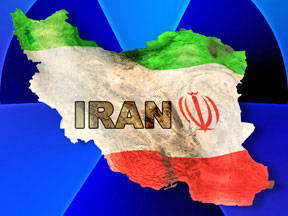By Ron Walters
-Guest Columnist-
- U.K. helped Israel get nuclear bomb (The Hindu, 03-11-2006)
- Brothers in arms – Israel’s secret pact with Apartheid South Africa (UK Guardian, 02-07-2006)
- Israel and South Africa: Apartheid’s Accidental Prophecy (Global Research.ca, 06-22-2005)

As I look at the frantic gyrations in the attempt by the U.S. and Israel to keep Iran from obtaining the ability to process nuclear fuel, I keep thinking about my first book, “South Africa and the Bomb” (1987), which described the White-minority regime’s attempt to acquire nuclear capability. Experts then rejected the notion that South Africa would manufacture nuclear weapons, or could do so, or that it wouldn’t have to use them to control the Black population, either inside the country or in the surrounding countries.
After several years of work with the United Nations Committee Against Apartheid on South Africa’s military and nuclear capability, I had come to another conclusion. South Africa’s military strategy of a “total solution” conceived on the possibility of being overwhelmed by Blacks heightened its xenophobia. Thus, its ability to reprocess uranium fuel gave it the ability to manufacture nuclear weapons, if needed.
Imagine my lack of surprise when on March 24, 1993, President De Klerk admitted in a speech they had manufactured nuclear weapons and vowed to dismantle them before the Black majority government came into power. No one has yet come forward to say that my work or that of others was right, but that is not really the most important point.
The point is that, while South Africa, a country known to have slaughtered thousands of Blacks, moved millions into concentration camp-like conditions, passed the most racist laws, maintained terrorist squads to control dissidents and invaded their neighbors to foster intimidation, was busy manufacturing nuclear weapons, no country came forward to respond to the warnings that I and others gave to the UN.
South Africa was effectively a member of the club, trusted by the West and using Western nuclear expertise freely, while building up weapons that could have caused untold destruction of the lives of Black people in Africa. There is even some evidence that in 1979, South Africa even tested a nuclear weapon by detonating it in the upper reaches of space, although covered up by the Carter administration. Israel was suspected of having helped South Africa develop its nuclear program, because none other than Henry Kissinger admitted that Israel itself had developed a small weapons capability. Yet, no international agency moved against them. And since Nelson Mandela did not want nuclear weapons, there was no “African bomb.”
It’s hard to argue that any country that wants to should have the capability to make nuclear weapons and, therefore, make the international system more dangerous, and so I won’t argue that principle. But what we see in the frantic attempt by the West to keep Iran from achieving nuclear capability is a clubbiness about who can own and develop nuclear capability. One of the objectives of the West has been, by all means, to prevent a so-called “Arab bomb” from coming into existence.
You cannot run an international nuclear regime based on such obvious discrimination, because it will then be impossible to justify preventing a country of a different race or ethnicity from obtaining a technology that is widely disseminated and available to many scientists around the globe who are not White–and not trusted. So, there must be principles and actions, other than the raw use of force, to prevent countries from obtaining this dangerous capability.
One early strategy was the “reactors for peace” program originated by Dwight Eisenhower under the rather naive theory that, if countries used such technology for civilian purposes, they would not attempt to develop military uses. The most powerful tool was to be periodic inspections of countries’ nuclear facilities by the International Atomic Energy Agency, something that could only be done if a country permitted inspections. Then, there was the example of leadership of the major powers in fashioning treaties that limited the construction and use of certain weapons but, in this area, American leadership has been suspect.
The current leadership of Iran is regarded as unstable and anti-Western and, therefore, not trusted to use nuclear capability responsibly. Although the West is in a position to pressure the international system to harass Iran about its intentions, it is a weak position to justify it. Has the current war in Iraq inspired trust of the West by the Arab world?
The war is a potent strike at this nuclear duplicity and a call to other non-Western states that have the money and scientific resources to try and protect themselves with nuclear capability. Stopping them could be the spark for more unnecessary wars, so the West should become more democratic about who can own nuclear technology and provide much greater leadership in achieving peaceful uses themselves.
(Ron Walters is the director of the African American Leadership Institute and professor of Government and Politics at the University of Maryland College Park.)












